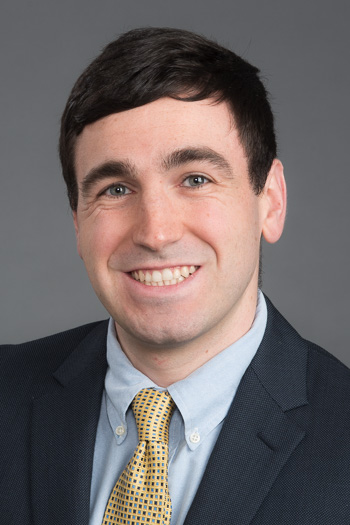July 6, 2022. By Zachary German.

My first opportunity to work with individuals experiencing homelessness was back in the winter of 2018 when I volunteered with the overflow shelters hosted at the community’s various churches. I remember thinking how incredible of an initiative this was – we were helping these people escape the dangerous cold each night while providing a few home-cooked meals for them. But early each morning, these individuals were asked to leave until nightfall, oftentimes having to return to freezing conditions or pouring rain. As a medical student and rising physician, I feel working toward a permanent housing approach is critical to addressing chronic homelessness and meeting a basic humanitarian need.
Homelessness is not a new issue for Winston-Salem. It is estimated that there are over 400 individuals in our community who are experiencing homelessness, and that number has not changed for years. Finding permanent, affordable housing should be the priority to address issues related to homelessness. Options include building additional subsidized housing projects, like Crystal Tower in Downtown Winston-Salem, or renting out rooms in motels across the city. Subsidized housing projects provide low cost housing to those who can prove financial need, and are often very similar in style to other local apartments and townhomes. They are affordable and they are often conveniently located to hubs for public transportation to increase accessibility to job opportunities and grocery stores. This not only empowers tenants to seek desirable jobs, but also allows them access to a myriad of healthier food options despite living miles away from grocery stores. At present, due to shortages of affordable housing options, subsidized housing is incredibly difficult to find, forcing applicants to wait months before they are finally approved to move into their new homes, even when they have all of their necessary paperwork and documentation completed.
Another opportunity for housing is renting out blocks of unused motel rooms. This option could serve as a temporary solution while more public housing is built, or while future tenants are waiting for their applications to be processed and approved. During the early months of the COVID-19 pandemic, this model was used to house and isolate many of the most medically fragile among our neighbors experiencing homelessness. This project was done in conjunction with housing agencies and allowed for faster processing of housing applications. Of the 60 guests in the hotel than I volunteered with, 48 left within three months for permanent housing.
Everyone deserves dignity. Providing a roof over someone’s head and a space they can call their own should not be a privilege – it should be a right. But for those who question the economic burden of housing policies, I want to challenge you to think of all of the indirect costs associated with homelessness that could be saved if we were to provide housing to all those in need. First, the city and state already pay a majority of the costs for shelters, which are not cheap. Second, populations experiencing homelessness are often much sicker as a result of poor diet, stress, and other factors. Populations experiencing homelessness have three times the risk of cardiovascular disease, twenty times the risk of developing tuberculosis, and higher rates of uncontrolled diabetes, trauma, and sexual assault than their housed equivalents. Populations experiencing homelessness are also much more likely to seek medical care in emergency rooms, where insurance is not required. Hospital systems typically shell out these healthcare costs and thus have to increase their prices for other care. Finally, populations experiencing homelessness are significantly more likely to be arrested and incarcerated compared to their housed equivalents. For many states, the cost of housing a single prisoner for one year can be between $25,000 and $30,000. No matter how you look at it, the costs of continuing our current system of allowing individuals to go unhoused will far outweigh the costs of providing subsidized housing to anyone in need. It’s time to end homelessness in Winston-Salem.
Zachary German, MD
Wake Forest School of Medicine, Class of 2022
2021-2022 NC Schweitzer Fellow
